Middle East
Know their Names: The Gaza Red Crescent paramedics Israel attacked | Israel-Palestine conflict News
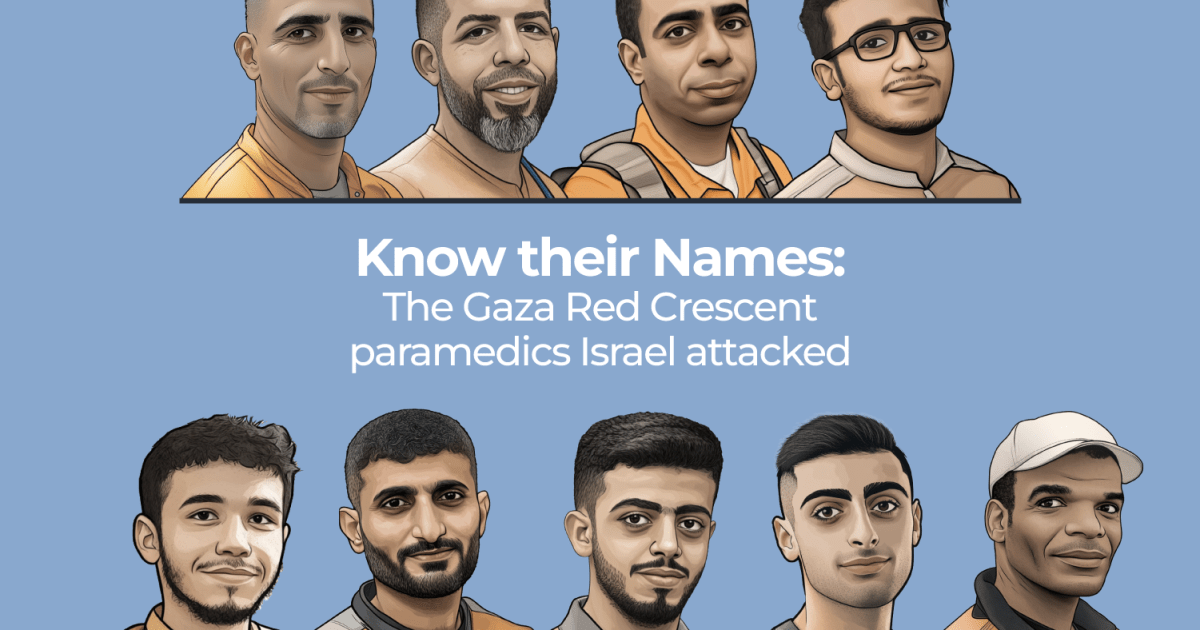
Refaat Radwan recorded his last mission and his own final breaths.
He was filming from the third ambulance in a convoy, which included a fire truck, that had gone out to find a Palestine Red Crescent Society (PRCS) ambulance that had lost contact with its base.
All the vehicles in the convoy were clearly marked, with emergency lights flashing.
In the video, the crew members see the missing ambulance by the side of the road and approach, muttering prayers for their colleagues’ safety.
Then a voice says: “They’re scattered on the ground! Look, look!” and Refaat runs out of his ambulance with other medics to check on the fallen aid workers.
Then the sound of bullets rings out as Israeli soldiers shoot at uniformed medics who were running to assist the medics they had already killed. Refaat was hit.
In his final moments, he prayed and called repeatedly to his mother to forgive him – for choosing the path of a paramedic, putting himself in harm’s way.
Israeli soldiers killed eight PRCS workers that night, as well as six workers from the Palestinian Civil Defence who had gone out on the same mission.
A ninth paramedic, Assaad al-Nassasra, was captured.

Here are the Red Crescent medics Israel ambushed that day, through the eyes of the people who loved them:
The quiet one: Ashraf Abu Labda
With his glasses and serious face, Ashraf was always a reassuring presence for his colleagues.
The 32-year-old medic had started volunteering with the PRCS in 2021.
He quickly integrated into the PRCS community, making sure that all his colleagues had a meal for iftar during Ramadan. He would either cook it himself at the Red Crescent centre or bring some of his family’s food from home to share.
In September 2023, he got married, and one month later, Israel launched its genocidal war on Gaza.
When he was killed, he left behind his wife and their two-month-old baby girl, Wiam.

The family man: Ezzeddin Shaath
Ezzeddin was 51 when Israeli soldiers killed him, and a father to six children.
The dedicated family man had a great sense of humour, but the war on Gaza stripped that away from him as he gradually stopped laughing.
He joined the PRCS in 2000, and four years later, he married Nivine, with whom he had four boys and two girls.
At work, he remained a sort of caregiver, making sure his colleagues got at least a little rest every night and something to eat.
His motto about rescue work was: “If it is written, we’ll make it back [from a mission], and if we don’t make it back, that’s our destiny,” his colleague Ibrahim Abu al-Kass told Al Jazeera.

The miracle worker: Mohamed Bahloul
A seven-year veteran of the Red Crescent, 36-year-old Mohamed loved his work, as any of his colleagues would tell you.
During crises, he would stay at the Red Crescent centre, only going home to see his wife and six children once a week.
His children ranged in age from three months to 11 years old at the time Israel killed Mohamed. Bereaved and confused, the children are clinging to the thought that their father died on a humanitarian mission, making him a “martyr”.
His colleagues remember him for just figuring things out, Abu al-Kass said. If ever Mohamed heard of a family that was being displaced and needed help, he would make it happen.
Since he himself couldn’t use ambulances to move people’s belongings, he would sweet-talk his family and friends until he found transport and shelter for those who were displaced.

The rescuers: Mustafa Khafaga and Mohamed al-Heila
Mustafa was 50 with a 15-year-old son, and Mohamed was 23 and single, but when they got together, their antics were legendary.
“One rainy day, those two were walking along when they saw an elderly woman trying to cross the road, but it was too wet and slippery,” Abu al-Kass said.
“So they looked at each other. One said: ‘So, are we partners or what? No matter what the mission is?’ and the other said: ‘Of course we are!’”

They went and got a chair and brought it up to the woman, asked her to sit down, and then lifted the chair and walked her carefully across the road, beaming the entire time.
“They were carrying her like she was a bride,” Abu al-Kass continued. The elated woman was laughing and cheering, he added, and sent loving prayers after her two rescuers.

The photographer: Raed el-Sharif
Raed, 25, loved taking pictures. Silly ones, serious ones, casual ones, posed ones.
And he hoped that one day the world would see his images and he would be able to convey the suffering of his people through his work.
He began volunteering with the PRCS in 2018, when he was 18, during the Great March of Return protests.
Israel killed 214 protesters, including 46 children, during these demonstrations, and injured 36,100, including nearly 8,800 children.
The youngest out of five siblings, Raed wasn’t married yet, although his family had been hoping he could get married after the war. But that didn’t happen.
Raed’s father recounts a harrowing nine-day wait to find out what happened to his youngest child, fighting to hold back the certainty that he had been executed along with his colleagues.

The good grandson: Refaat Radwan
Twenty-four-year-old Refaat was a gentle soul, Abu al-Kass told Al Jazeera.
“He especially made sure to help any elderly woman he came across. If he saw such a woman standing in line to collect her medicine from the hospital pharmacy, he would ask her to sit down and go fetch the medicines for her.
“It was like he sought out the prayers these gentle women would say for him when he helped them. He would bring them what they needed, then would bid them farewell so tenderly that anyone watching would think she was his grandmother.”

The daring one: Saleh Muammar
Saleh, 42, liked to help. On that, everyone agrees.
His brother Hussein told Al Jazeera that Saleh also loved his work, rushing back as soon as he recovered from surgery in 2024.
Last February, Hussein explained, Saleh had been on a mission to help wounded people when Israeli forces had opened fire on the medics, despite having been informed that they would be there.
Saleh was badly injured in the shoulder and chest, and ended up having to spend time in hospital for surgery and recovery, after which he went straight back to work.
That was his bravery, Abu al-Kass commented. “He was dedicated to helping, and used to say that wherever people were crying out for help, that’s where we should be, to respond to them.”

MISSING – The child whisperer: Assaad al-Nassasra
Assaad always showed endless patience for negotiating with kids, Abu al-Kass said.
Whenever he saw children playing in the street, he would get to wheeling and dealing, offering them candy to get off the road and go play somewhere safe.
The kids quickly figured him out, though, and would be playing in the street again the next time, giggling and saying: “We tricked you!”
But Assaad never minded, and simply kept handing over sweets.
His body wasn’t among those found when an international mission went to search for the missing emergency workers.
He was captured, bound and taken away, according to the one surviving witness, Munther Abed.
The 47-year-old father of six last spoke to his family the evening he disappeared, telling them he was on his way to PRCS headquarters to have iftar with his colleagues, according to his son Mohamed.
When they tried to call him around suhoor time, he didn’t respond, and they found out from headquarters that nobody could reach him or the other emergency workers.
He had always warned his family that whenever he headed out on a mission, he may not make it back, his son said. But as Assaad continued his rescue work for PRCS, they had always tried to avoid thinking about that.

Middle East
Saudi defence minister visits Tehran before Iran-US talks | United Nations News
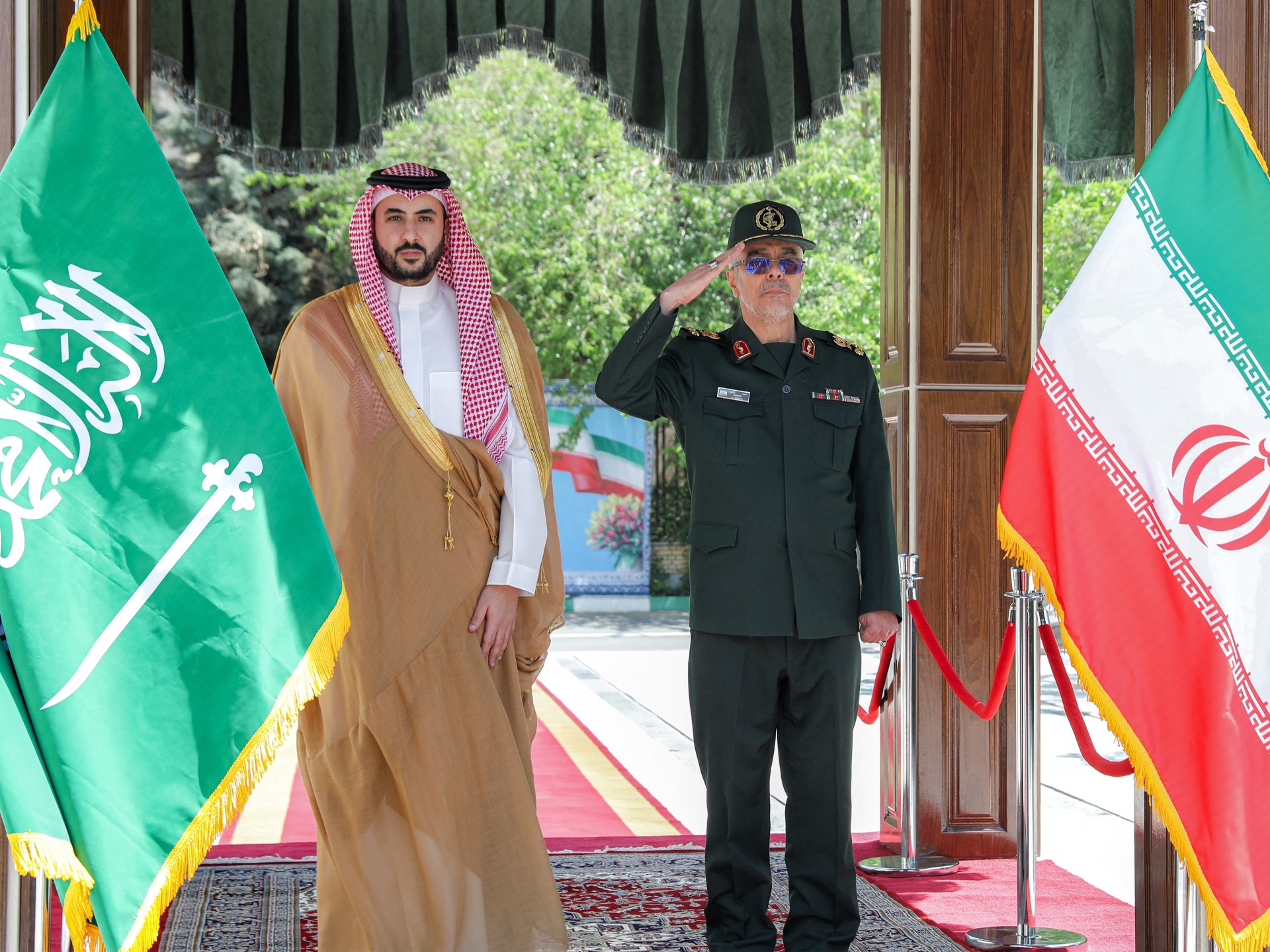
Saudi Arabia’s Defence Minister Prince Khalid bin Salman has met several Iranian officials before a second round of talks between Washington and Tehran over Iran’s nuclear programme.
The visit comes amid growing fears of a potential conflict in the region if diplomatic efforts fail to resolve soaring tensions between the United States and Iran, with President Donald Trump repeatedly threatening to bomb Iran if it does not reach an agreement with the US over its nuclear-related activities.
Prince Khalid said he conveyed a message from Saudi Arabia’s King Salman to Iranian Supreme Leader Ayatollah Ali Khamenei during Thursday’s meeting in Tehran.
“We discussed our bilateral relations and topics of mutual interest,” he wrote on X.
“Our belief is that the relationship between the Islamic Republic of Iran and Saudi Arabia is beneficial for both countries,” Iranian state media cited Khamenei as saying in the meeting on Thursday.
Prince Khalid also met President Masoud Pezeshkian and Iran’s armed forces chief of staff, Mohammad Bagheri.
“Ties between the Saudi and Iranian armed forces have been improving since the Beijing agreement,” Bagheri said after the meeting, according to Iranian state media.
Saudi Arabia has welcomed Iran’s nuclear talks with the US, saying it supported efforts to resolve regional and international disputes.
Hamidreza Gholamzadeh, a political analyst, said the purpose of the Saudi defence minister’s was likely to express concern about a potential attack on Iran.
“Saudis want to share their concern and reassure Iran that they would not like … attacks against Iran and they want better relations with Iran,” he told Al Jazeera.
Iran and Saudi Arabia agreed in a 2023 deal brokered by China to re-establish relations after years of hostility that had threatened stability and security in the Gulf region and helped fuel conflicts in the Middle East from Yemen to Syria.
‘Crucial stage’
The Saudi defence minister’s trip coincided with a visit to Iran by the UN nuclear watchdog chief, Rafael Grossi, who warned that the US and Iran were running out of time to reach a deal.
Iranian and US delegations are set to gather in Rome on Saturday for a second round of Omani-mediated negotiations, a week after the longtime foes held their highest-level talks since US President Donald Trump abandoned a landmark nuclear accord during his first term in 2018.
Since re-entering the White House in January, Trump has revived his so-called “maximum pressure” policy, imposing punishing economic sanctions against Iran and threatening military action if Tehran does not agree to a deal.
“We are in a very crucial stage of these important negotiations. We know we don’t have much time, this is why I am here … to facilitate this process,” Grossi said on Thursday.
“We are working hard and we want to succeed,” he told a joint news conference with Iran’s atomic energy agency chief Mohammad Eslami, acknowledging that the effort to secure a deal was “not an easy process”.
Asked about US President Donald Trump’s threats to attack Iran, Grossi urged people to “concentrate on our objective.”
“Once we get to our objective, all of these things will evaporate because there will be no reason for concern,” he said.
In March, Trump sent a letter to Iran’s Supreme Leader Ayatollah Ali Khamenei urging talks and warning of possible military action if Iran refused.
Khamenei has cautioned that while the talks with the United States had started well, they could yet prove fruitless.
“The negotiations may or may not yield results,” he said on Tuesday.
Western governments have long accused Iran of seeking to acquire nuclear weapons capability, an ambition Tehran has consistently denied.
Since the nuclear deal’s collapse in 2018, Iran has abandoned all limits on its programme, and enriches uranium to up to 60 percent purity, near weapons-grade levels of 90 percent.
Surveillance cameras installed by the IAEA have been disrupted, while Iran has barred some of the Vienna-based agency’s most experienced inspectors.
But despite the tensions between Iran and the agency, its access has not been entirely revoked.
Middle East
Russia’s Putin, Qatar’s emir discuss Syria and Gaza at Moscow talks | Syria’s War News
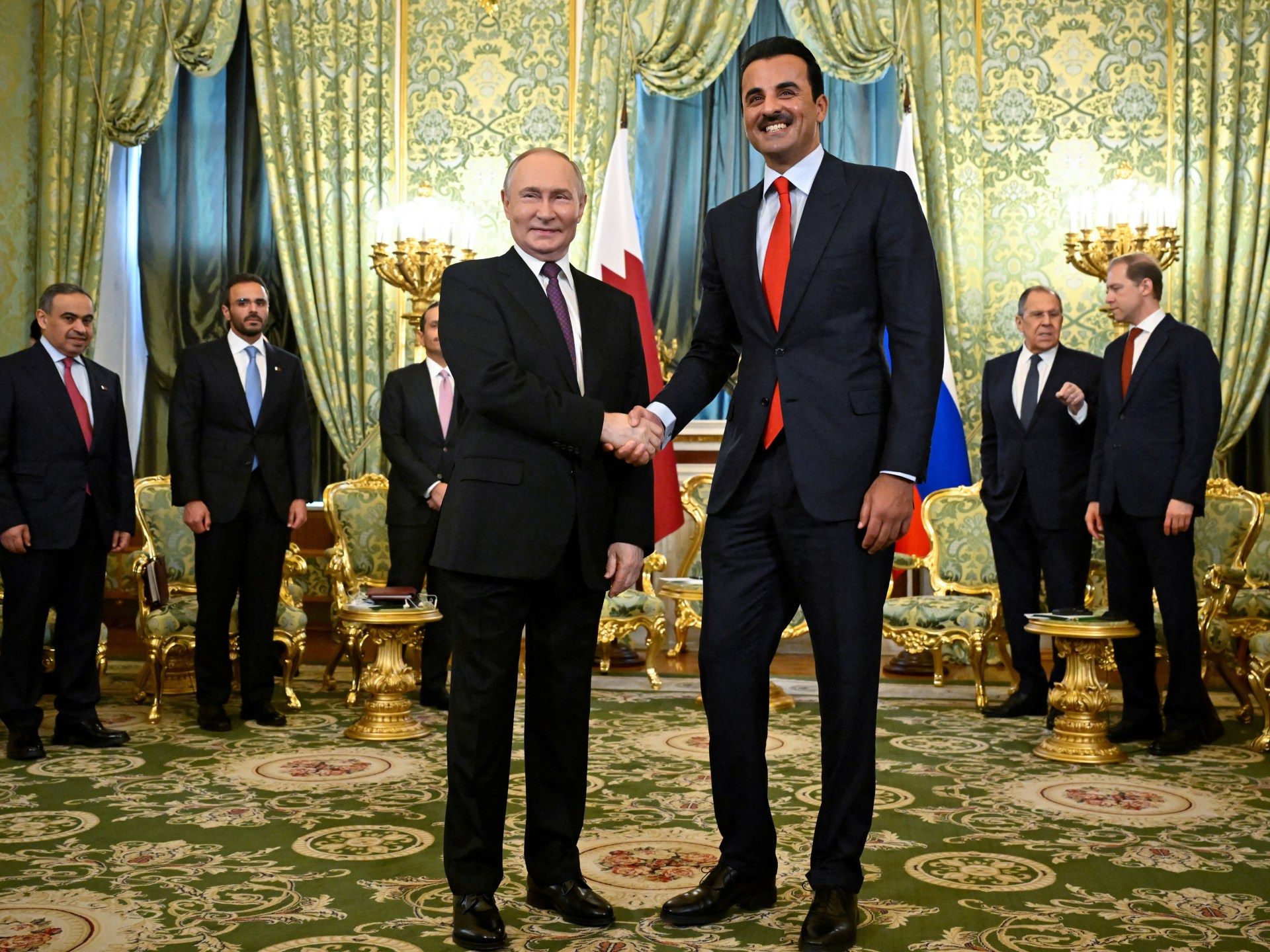
Ahmed al-Sharaa, Syria’s new leader, would like better relations with Moscow, Qatar said.
Qatar’s Emir Sheikh Tamim bin Hamad Al Thani has told Russian President Vladimir Putin that Syria’s new leader is keen to build ties with Moscow.
At talks in the Russian capital on Thursday, Al Thani assured the Russian leader that interim president Ahmed al-Sharaa was seeking to build relations with Russia, after the removal of former President Bashar al-Assad, who was a close ally of Moscow.
“As for Syria, a few days ago President al-Sharaa was in Qatar, and we spoke with him about the historical and strategic relationship between Syria and Russia,” Al Thani told Putin.
The talks come as Putin attempts to retain Russia’s use of two military bases in Syria to maintain its influence in the region after al-Assad fled the country in December as opposition fighters led by Ahmed al-Sharaa closed in on the capital.
Putin said Syria’s situation, rocked by sectarian violence in recent weeks, was of serious importance.
“We would like to do everything to ensure that Syria, firstly, remains a sovereign, independent and territorially integral state, and we would like to discuss with you the possibility of providing assistance to the Syrian people, including humanitarian assistance,” the Kremlin leader told the emir.
The two men also discussed the situation in Gaza, where Qatar played a key role in brokering a January ceasefire deal between Israel and Hamas for a three-phase ceasefire.
Israel restarted its offensive in the besieged enclave in March, and talks to try to restore the ceasefire have so far failed to achieve a breakthrough.
“We reached an agreement regarding Gaza a few months back, but Israel has not adhered to the agreement,” Al Thani said.
“Qatar, in its role as a mediator, will strive to bridge differing perspectives in an effort to reach an agreement to end the suffering of the Palestinian people.”
Putin told the emir, “We know that Qatar is making very serious efforts to resolve the Israeli-Palestinian conflict.
Unfortunately, the initiatives put forward, including by you, have not been implemented. Peaceful people continue to die in Palestine, which is an absolute tragedy of today.”
Interfax quoted Kremlin spokesperson Dmitry Peskov as saying there was no substantive discussion of the war in Ukraine, but Putin expressed thanks for Qatar’s involvement in arranging the return of children from both countries who were separated from their parents during the war.
Middle East
Palestinian photographer Samar Abu Elouf wins world’s top photo prize | Gaza News
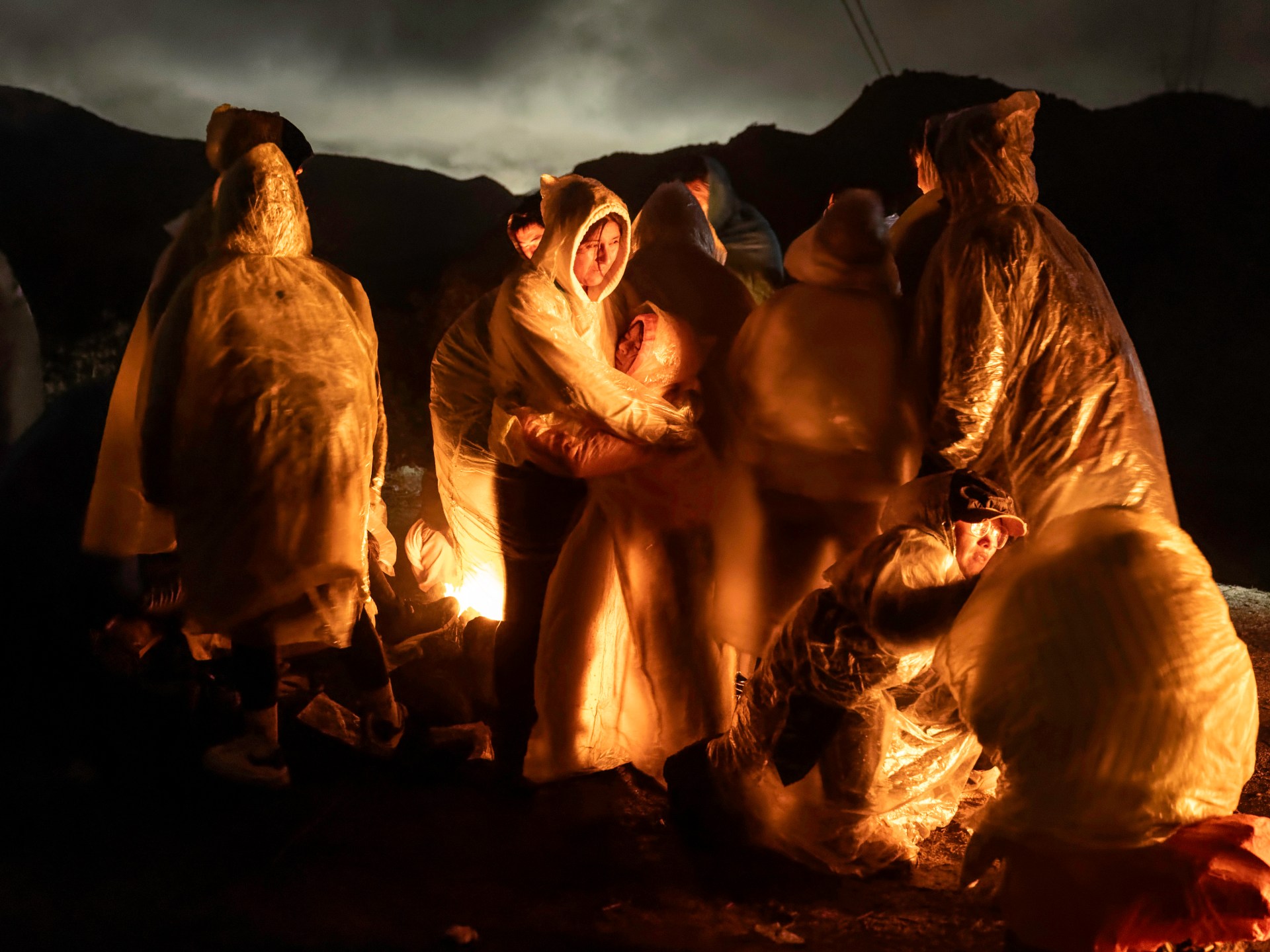
The 2025 World Press Photo of the Year has been awarded to Samar Abu Elouf, a Doha-based Palestinian photographer, for her poignant image of Mahmoud Ajjour, a young boy severely injured while fleeing an Israeli attack in Gaza.
Captured for The New York Times newspaper, the photograph powerfully conveys Mahmoud’s suffering and resilience after an explosion in March last year left one of his arms severed and the other mutilated.
Since her evacuation from Gaza in December 2023, Abu Elouf has been documenting the experiences of individuals like Mahmoud, who sought medical treatment abroad.
Joumana El Zein Khoury, executive director of World Press Photo, an Amsterdam-based organisation, described the image as “quiet” yet deeply impactful, capturing the intimate suffering of one child while also speaking to the wider repercussions of global conflict.
The winner and two finalists were announced on Thursday, during the press opening of the World Press Photo Exhibition in Amsterdam. The exhibition will travel to more than 60 locations worldwide, showcasing some of the year’s most compelling and visually striking stories.
For 70 years, the World Press Photo Contest has honoured the best in photojournalism. This year’s contest received at least 59,000 submissions from photographers in 141 countries, featuring powerful stories of struggle, defiance, warmth and courage.
Here are some of the top images of this year:
-

 Education1 day ago
Education1 day agoTrump administration revokes humanitarian parole of Spanish teacher
-

 Conflict Zones8 hours ago
Conflict Zones8 hours agoHaiti in ‘free fall’ as violence escalates, rights group warns | Armed Groups News
-

 Sports2 days ago
Sports2 days agoStephen Curry and Jimmy Butler lift the Warriors past the Grizzlies and into the NBA Playoffs
-
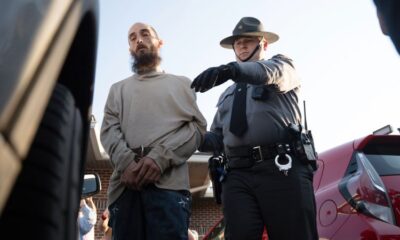
 Europe1 day ago
Europe1 day agoCody Balmer, the suspect in arson at Pennsylvania governor’s home targeted the governor for his views on war in Gaza, warrant says
-

 Sports1 day ago
Sports1 day agoNew Orleans Saints win lawsuit over fleur-de-lis trademark filed by ‘direct descendant of the Kings of France’
-
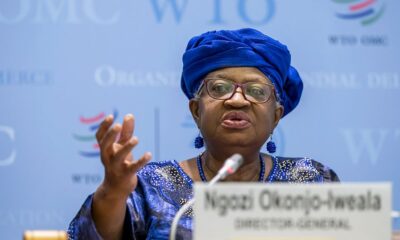
 Africa1 day ago
Africa1 day agoWorld Trade Organization says global trade could slide this year due to tariffs
-

 Europe1 day ago
Europe1 day agoLive updates: Trump news, immigration and tariff updates
-

 Education1 day ago
Education1 day agoReggaeton is sending China wild — and it’s teaching college students Spanish



